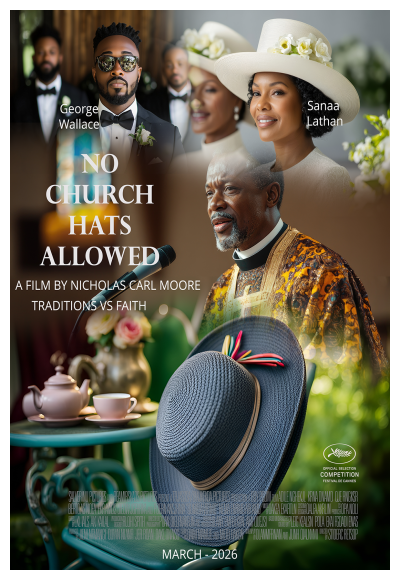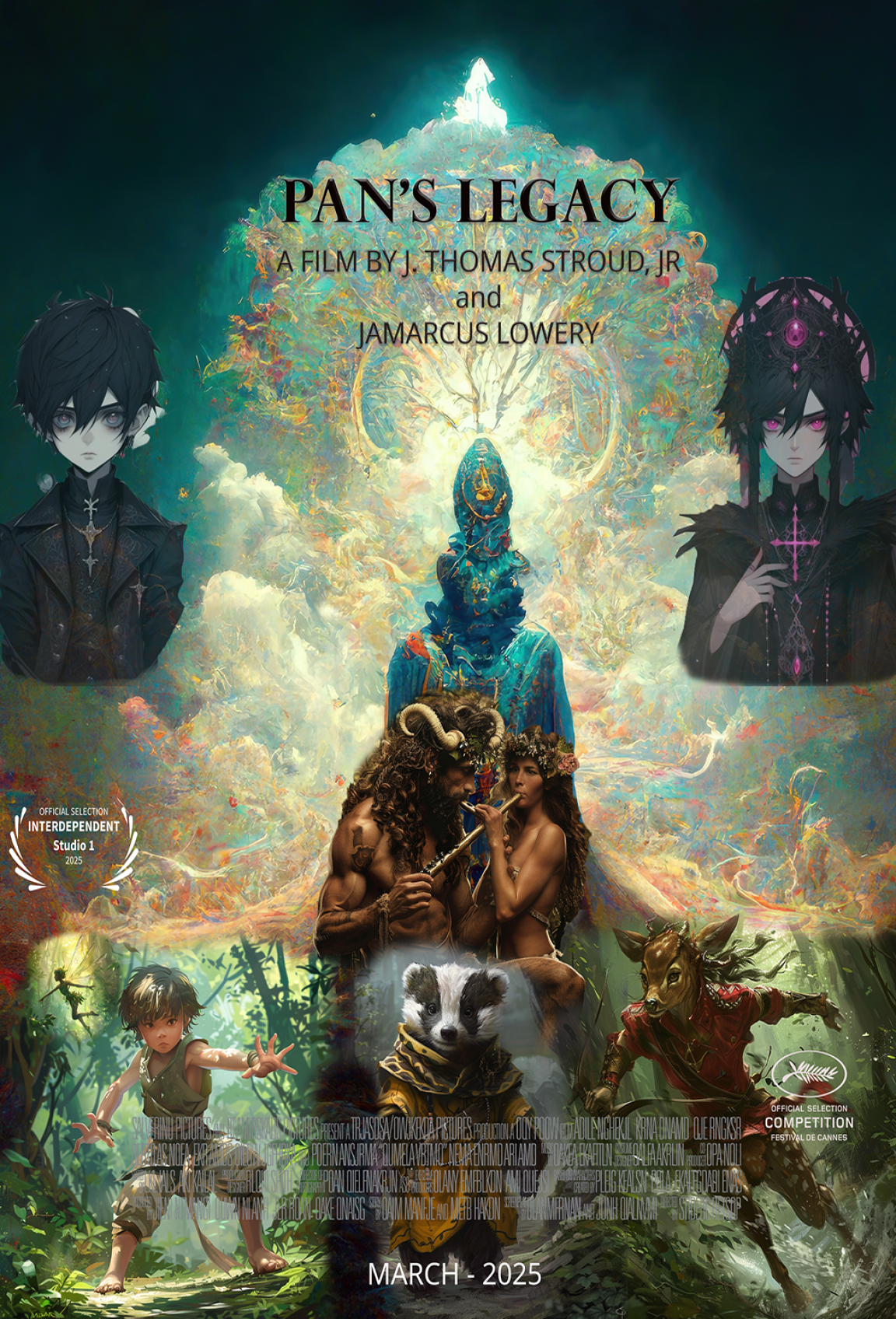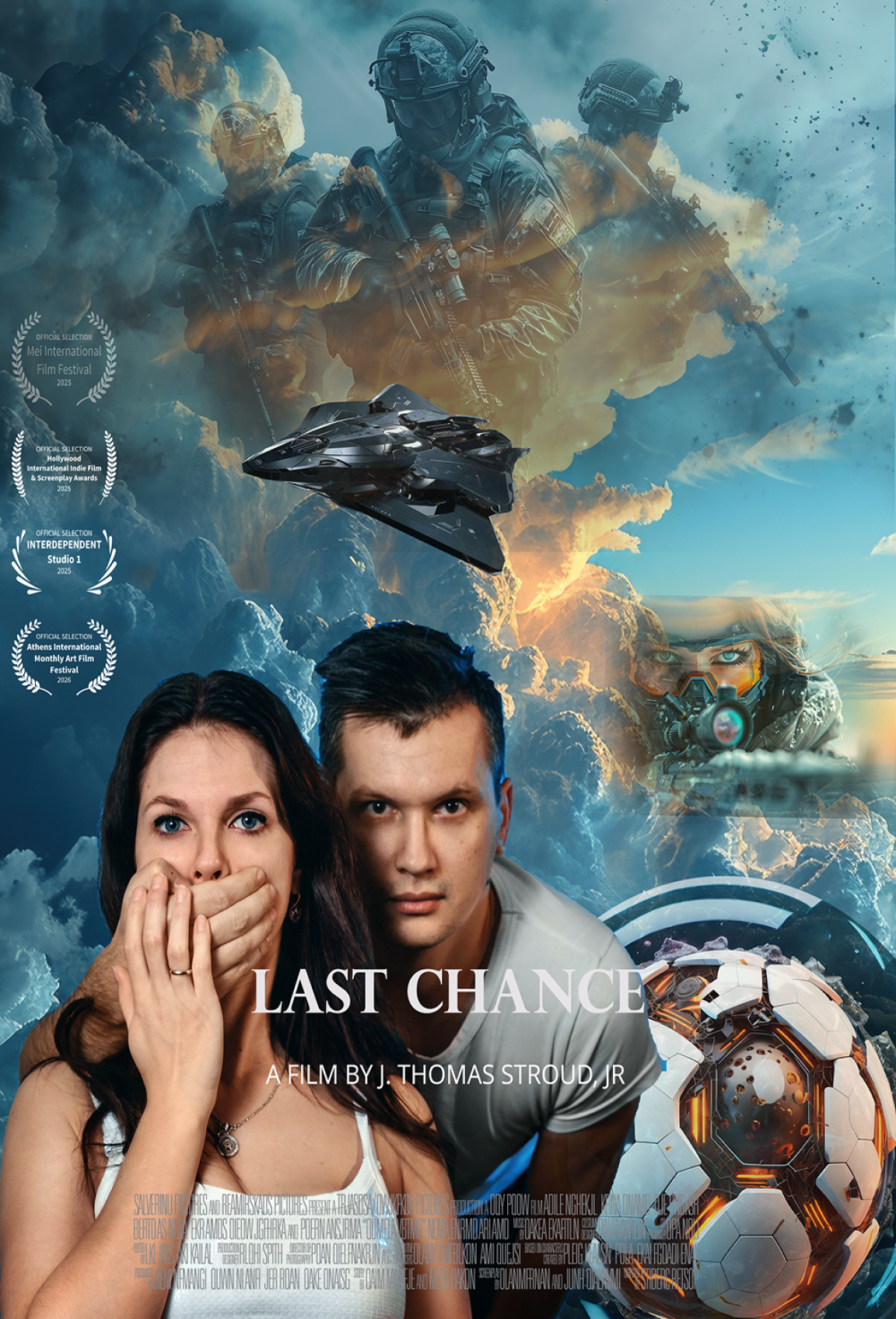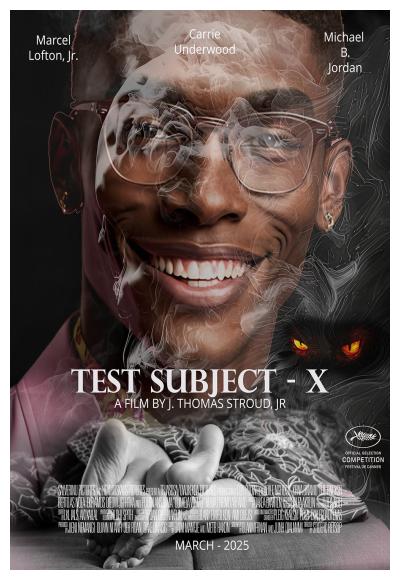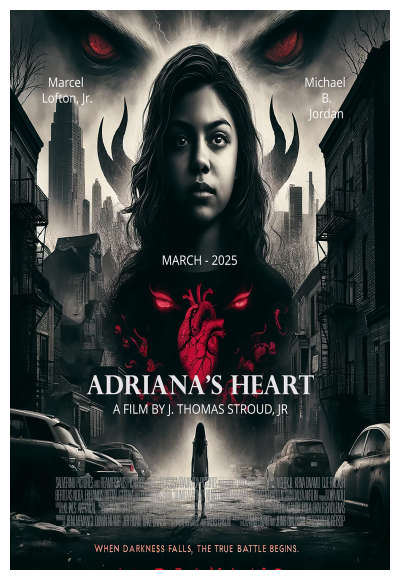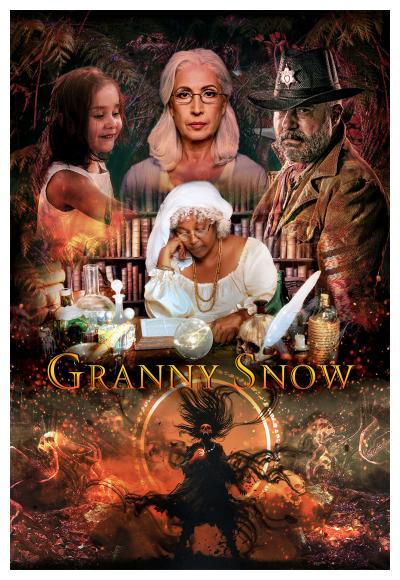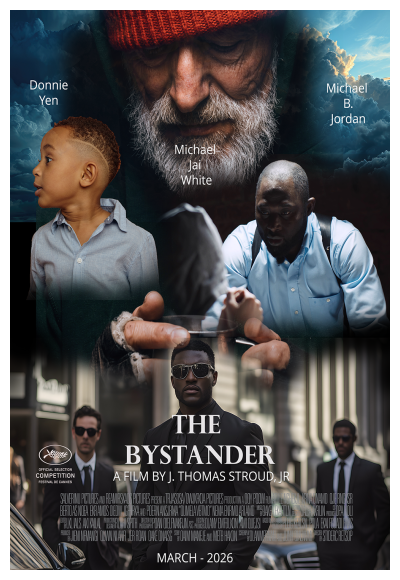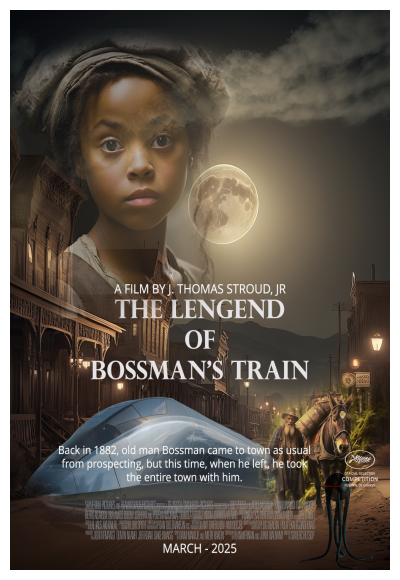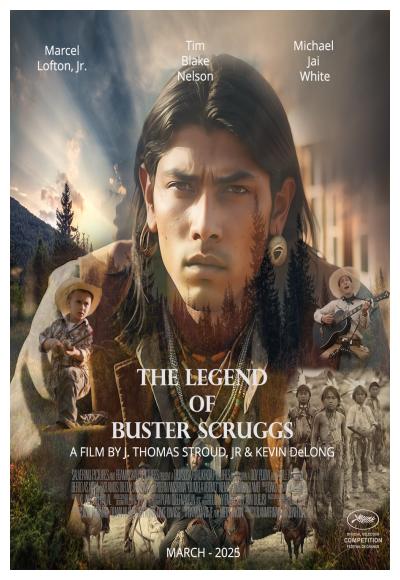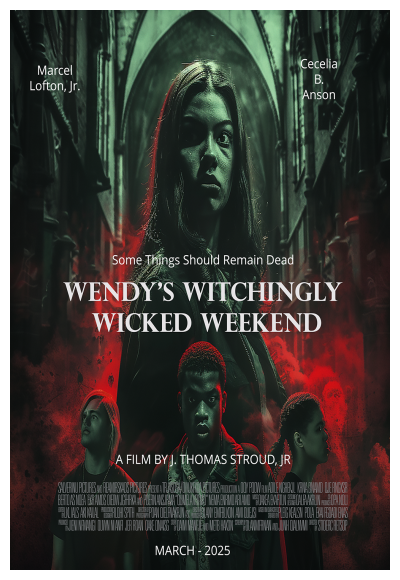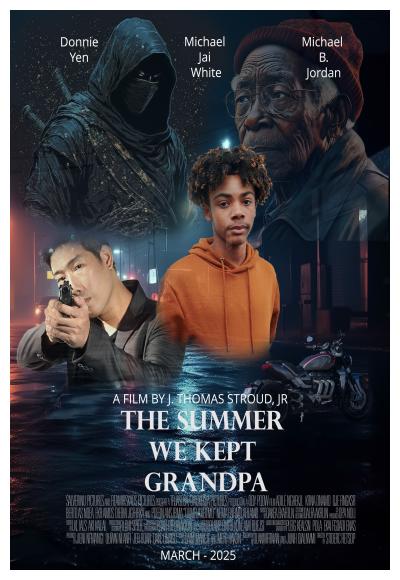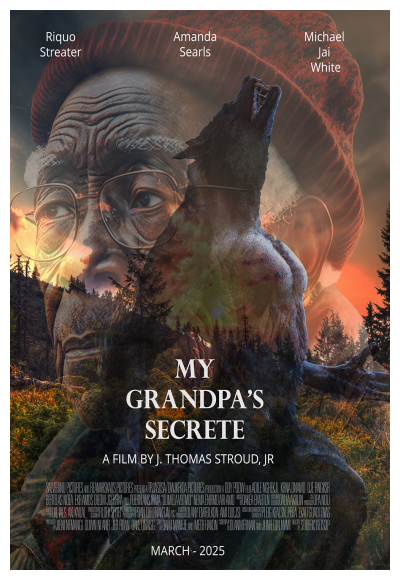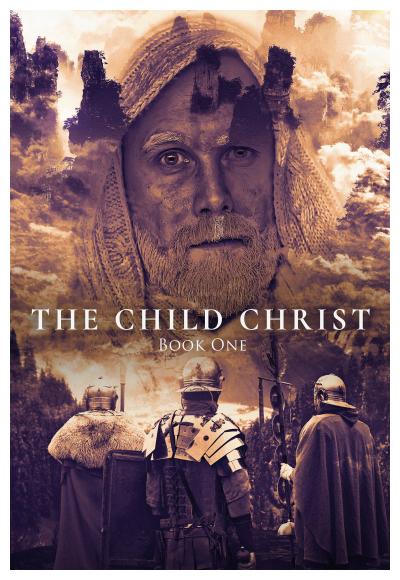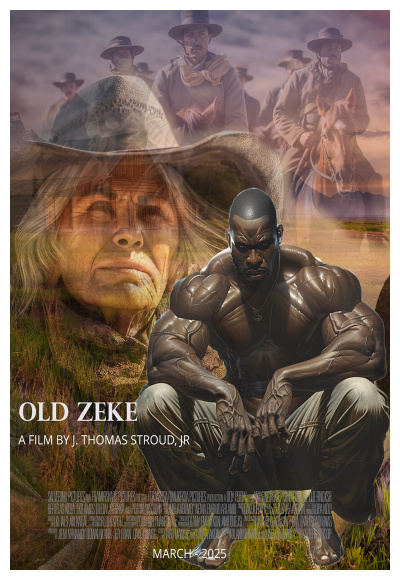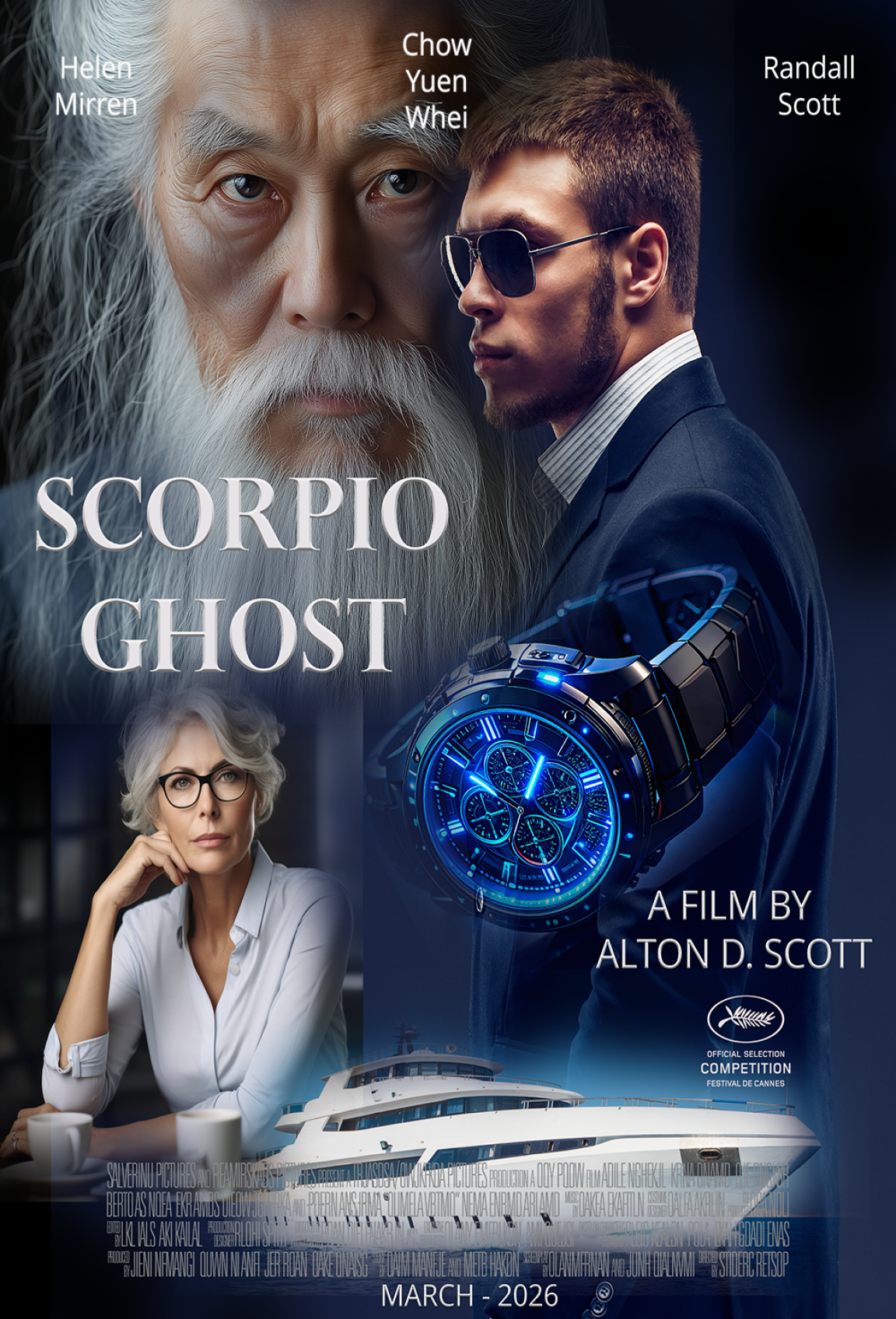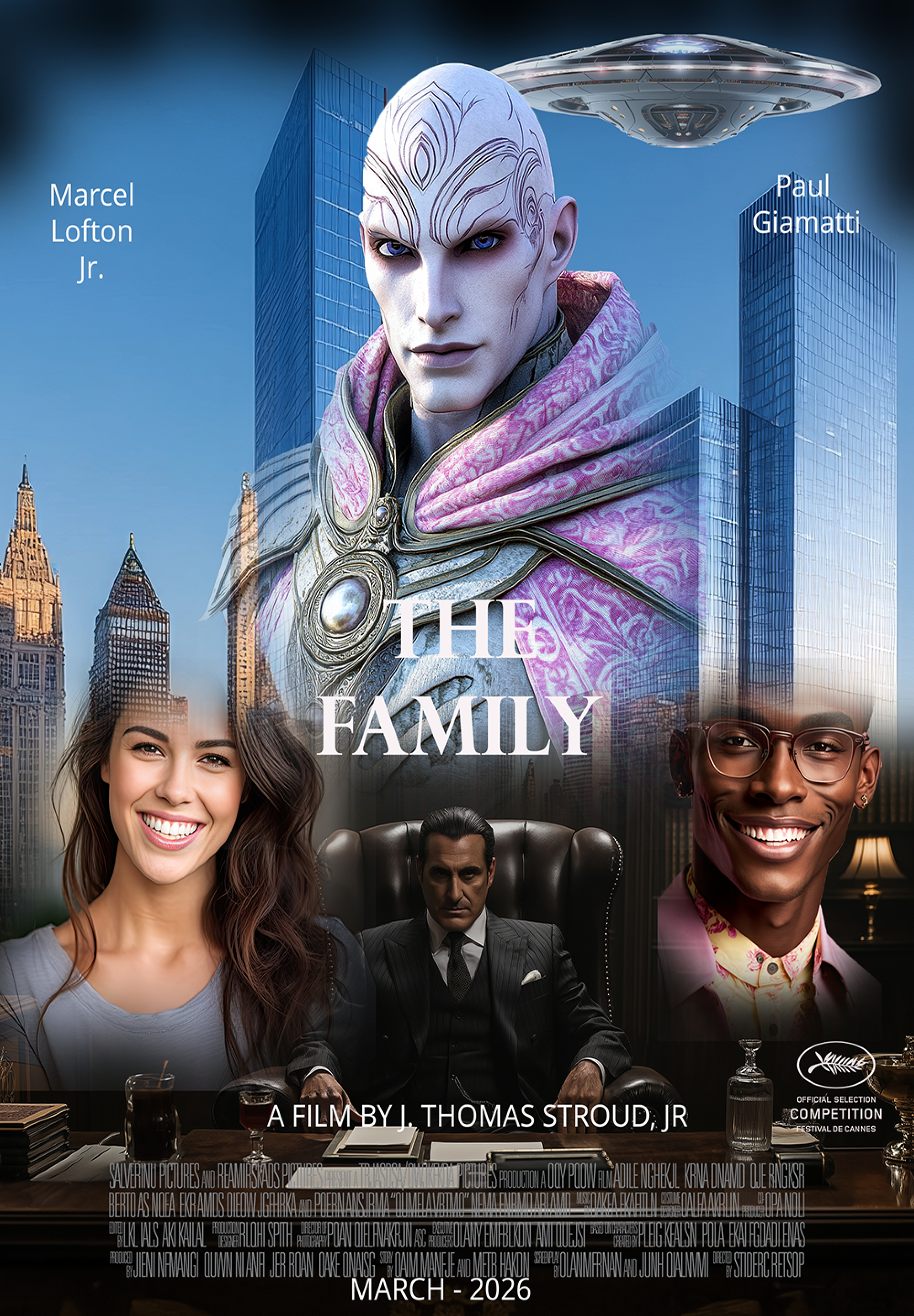
Synopsis/Details
All Accolades & Coverage
Coverage Report by Nolan Filmmaker's Studio
"The Family" script presents a compelling narrative that intertwines themes of love, duty, and legacy within a
framework that blends elements of science fiction and crime drama. The story structure adheres to classic narrative
frameworks, effectively establishing a world where extraterrestrial beings live among humans, tasked with observing
and guiding them. This is reminiscent of the 'alien observer' trope in science fiction, used here to explore themes of
cultural assimilation and the clash between familial duty and personal desire.
Character development is a significant strength of the script. Trenton, the protagonist, embodies the classic conflict
of choosing between personal desires and familial obligations, reminiscent of the hero's journey in McKee's 'Story'.
His relationship with Alma serves as the emotional core, providing a humanizing counterpoint to the alien objectives
of his family. Francesco, as the antagonist, is well-crafted; his motivations are clear and rooted in a desire to protect
his legacy, aligning with Truby's emphasis on character-driven storytelling.
The pacing maintains tension throughout, with the escalating stakes mirrored in the personal and intergalactic
conflicts. However, the script occasionally leans heavily on exposition, which could be streamlined for greater
emotional impact and to maintain narrative momentum. The climax is both surprising and poignant, offering a
resolution that is both satisfying and thought-provoking.
Emotionally, the script engages effectively by juxtaposing human emotions against the backdrop of an alien
narrative. This duality could appeal to audiences seeking a blend of intimate character drama and high-concept
science fiction. The script's exploration of themes such as identity, belonging, and the consequences of power adds
layers of depth, adhering to effective storytelling techniques that resonate with universal human experiences.
Script Review: "The Family"
Overall Story Structure:
"The Family" weaves a complex narrative that merges elements of science fiction, romance, and crime drama. The
screenplay adheres loosely to traditional three-act structure principles, with a clear inciting incident, midpoint, and
climax, but it also exhibits some non-linear storytelling elements that might be disorienting if not handled carefully.
The story begins with a captivating introduction to Earth from space, quickly narrowing down to the lives of two
distinct families—the human Giovani family and the alien Kryce family—setting up a cross-cultural and intergalactic
conflict.
However, the screenplay could benefit from a stronger "Save the Cat" moment early on, where we see the protagonist,
Trenton, perform an act that would cement our empathy for him. The story’s thematic core explores themes of love,
legacy, and the tension between protection and control, but sometimes these themes are overshadowed by the
story's ambitious scope.
Character Development:
Trenton Kryce serves as the protagonist, a young alien struggling to balance his mission's duties with his growing
affection for Alma Giovani. His arc is somewhat traditional: a young man caught between worlds, eventually finding a
semblance of peace after a tragedy. However, the depth of his internal conflict could be better fleshed out to heighten
the emotional stakes. His journey lacks some of the "Hero's Journey" beats that could make his transformation more
compelling and relatable.
Francesco Giovani is portrayed as a complex antagonist whose motivations—protecting his family's legacy—are
clear, yet he sometimes verges on caricature, particularly in scenes that demand subtlety. His character could benefit
from added layers that reveal vulnerabilities or moments of doubt, aligning with John Truby's suggestion that even
antagonists should possess relatable traits.
The Kryce family, especially Falon and Mirri, serve as narrative anchors, embodying the film's thematic tension
between duty and personal freedom. Their portrayal as dignified yet conflicted parents adds depth to the narrative.
However, Falon's final actions, which border on genocide, risk alienating the audience's sympathy, necessitating
careful handling to maintain narrative coherence.
Dialogue Quality:
The dialogue in "The Family" occasionally shines with moments of insight and tension, but at other times it lapses into
exposition-heavy exchanges that slow the narrative pace. Trenton and Alma's conversations capture the innocence
and intensity of young love, though they sometimes lack the subtext that could make them more dynamic.
Francesco's dialogue is often blunt, reflecting his character's intensity, yet it might benefit from more nuanced
delivery that reveals layers of his personality. The Kryce family's dialogue successfully conveys their otherworldliness,
though it risks becoming too formal and distancing the audience.
Pacing:
The screenplay's pacing is uneven. The first act effectively sets up the world and characters, but the second
act occasionally drags under the weight of exposition and subplot development. The midpoint—the revelation of
Trenton's true heritage—is handled well, but the subsequent escalation towards the climax feels rushed, with the resolution arriving abruptly.
Balancing the dual narratives of the Giovani mafia dealings and the Kryce intergalactic mission presents a challenge
that is not always met, with each storyline vying for attention rather than seamlessly interweaving. Streamlining
certain subplots could enhance the screenplay's overall rhythm.
Emotional Impact:
"The Family" seeks to deliver an emotional impact through the tragic love story between Trenton and Alma. While
their relationship is central to the narrative's emotional core, the rapid escalation to tragedy in the third act lacks
the buildup necessary to maximize its poignancy. The audience needs more time to invest in their bond to fully feel
the weight of its loss.
Falon's drastic actions in response to Trenton's death introduce a dark twist that alters the film's tone. This choice
could be powerful but requires careful execution to maintain audience engagement and empathy. The final scenes,
particularly the ambiguous revival of Trenton, aim for a bittersweet resolution but may leave viewers with mixed
emotions due to the lack of closure regarding the consequences of Falon’s actions.
**Engagement with Intended Audience and Storytelling Techniques:**
"The Family" targets an audience interested in genre-blending narratives that explore universal themes through
fantastical lenses. The screenplay's ambition is commendable, but it must align more closely with established
storytelling techniques to ensure clarity and engagement.
Drawing from Robert McKee's "Story," the screenplay could benefit from a stronger inciting incident and clearer
story spine. Blake Snyder's "Save the Cat" principles suggest focusing on delivering a protagonist that audiences can
root for unequivocally. Meanwhile, adhering to John Truby's emphasis on moral argument could deepen the script's
exploration of its central themes.
In summary, "The Family" is a script rich with potential, yet it requires refinement in structure, pacing, and character
development to fully realize its vision. Balancing its ambitious elements with focused storytelling will enhance its
ability to resonate emotionally with its audience.

